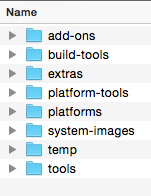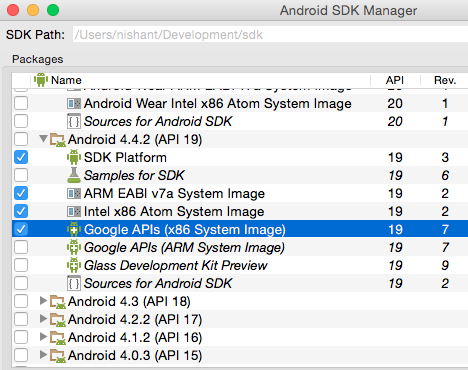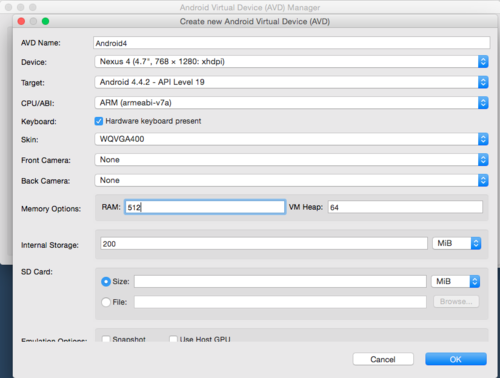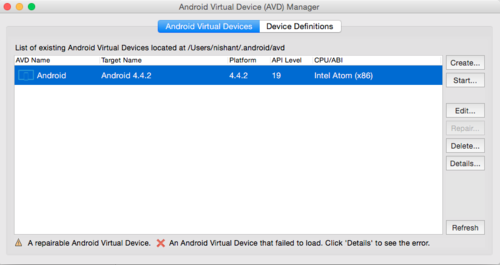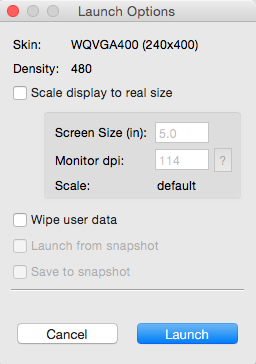-
Notifications
You must be signed in to change notification settings - Fork 23
How to create a new emulator for Optimus
Installing Android
- Android Requirements
Android SDK API >= 17 (Additional features require 18/19) Appium supports Android on OS X, Linux and Windows. Android SDK needs to be downloaded from the following location.
http://developer.android.com/sdk/index.html
Once you download the file and unzip, you would see the below structure in the sdk folder. Screen
Post unzipping, update the system variable to include sdk as well. For mac users below are the command snapshot (change the path and folder name accordingly as per your machine)
On macOS
export ANDROID_HOME=/Users/Steve/Development/SDK
export PATH =${PATH}:$ANDROID_HOME/tools:$ANDROID_HOME/platform-tools
On Ubuntu based Systems
Open the terminal and open the .bash_profile via your favourite text editor gedit ~/.bash_profile
and then paste the following command into your .bash_profile file
export ANDROID_HOME=$HOME/Android/Sdk
export PATH=$PATH:$ANDROID_HOME/tools
Once this is done, we need to launch the SDK manager to download relevant files to create an emulator and run the virtual device. In terminal, type in
android sdk
This would open the SDK manager for you to download the relevant files. In the SDK manager select the below files as shown below. This will help you create a virtual device running Android 4.4.2. Screen
Select the above files and choose to install, once done close the SDK manager. In terminal then type
android avd
This would open the Android Virtual Device Manager, which would help you create the virtual devices. Click on Create on the pop up opened and follow the below snapshot for the values. Select the RAM size as per your machine configuration.
Screen
Once you have selected the above options, click OK. Once done, it will show up in the AVD manager as below. Screen
Select the AVD name and click on Start on the right. This would launch the pop up with few options, you may choose as you want.
Screen
Wipe user data would wipe any previous app installation you have done and would launch a plain vanilla emulator.
Once done click on Launch, this will launch the emulator.
You can use the command adb devices to see if the adb is detecting the emulator. This basically completes the android SDK installation part.
